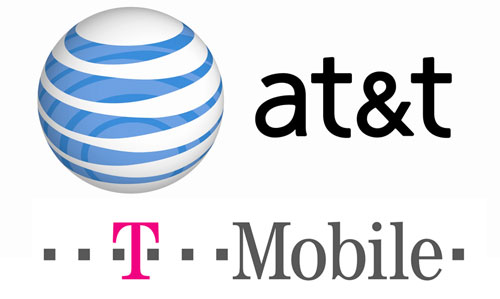US carrier AT&T’s earnings for the third quarter of 2011 have fallen slightly short of Wall Street expectations as revenues hit $31.5bn, down $103m - or 0.3 per cent – on the same period a year earlier.
October 21, 2011

US carrier AT&T’s earnings for the third quarter of 2011 have fallen slightly short of Wall Street expectations as revenues hit $31.5bn, down $103m – or 0.3 per cent – on the same period a year earlier.

At&Amp;T 'S Fortunes Suffer, But How Likely Is The T-Mobile Usa Acquisition To Go Ahead?
The USA’s number two operator also saw its net income for the quarter – which ended September 30, 2011 – stand at just $3.6bn, a cool $8.7bn down from the $12.3bn it recorded in the same quarter last year. However, the figure from 3Q10 included one-time gains from a tax settlement and the sale of subsidiary Sterling Commerce. Net income excluding one-time items in 3Q10 was $3.2bn, meaning the firm effectively saw a $400m improvement to its bottom line.
The overall earnings may have been slightly skewed due to the fact that many consumers opted not to buy the operator’s flagship offering, the iPhone, towards the end of the quarter, as they anticipated the launch of Apple’s new handset, the iPhone 4S. AT&T said it activated just 2.7 million iPhones in the third quarter, the lowest number in a year and a half. The fourth quarter looks much more promising for the firm though, as it has already activated one million iPhone 4S customers, as orders began coming in early October, after the end of the third quarter.
Worryingly, the firm’s wireless service revenue grew just 4.3 per cent on the same quarter last year. In 2008 it had 14 per cent third quarter YoY growth, in 2009 it was 10 per cent, in 2010 it was seven per cent and in 2011 it was four per cent.
Sara Kaufman, analyst for telco strategy at Ovum explained that the reason for the slowdown is more a symptom of US wireless market saturation and the shift in the types of connections operators are now selling.
“Exploiting the demand for mobile broadband services, AT&T and other operators are now seeking new revenue from a new mix of lower ARPU mobile broadband services like tablets, USB modems, connected devices or even M2M services all of which tend to garner considerably lower ARPU per connection,” she said.
“In other words, with operators selling second, third and perhaps fourth connections to consumers, each consumer’s wireless bill maybe be going up even as AT&T collects less additional revenue per user from these additional connections.”
Kaufman added that it is worth noting that AT&T has the highest postpaid ARPU among the US operators and that 3Q10 was an exceptional month of growth for AT&T, so any comparisons to that quarter will be somewhat muted.
There were a few of the other dynamics at play that are impacting revenue growth for AT&T, and Verizon too, she explained. The move to tiered data pricing coupled with data, which is currently a lower ARPU service, is making up a larger proportion of services revenue and AT&T has lost its iPhone exclusivity.
T-Mobile USA acquisition
As AT&T is still trying to push through its acquisition of T-Mobile USA, the Department of Justice (DoJ) has filed a civil lawsuit opposing the proposed merger, and Kaufman admits that this makes predicting whether this deal will ultimately go through extremely difficult to determine.
“I don’t believe AT&T entered this $39bn deal complete with a multi-billion dollar back-out penalty lightly and without reasonable certainty that it would ultimately be approved,” she said. “But it is clearly going to have to make huge concessions in order to make that happen, something the company surely realised going into this endeavour. So the question is, how much is AT&T willing to give up to make the deal happen? And how long will it take to come to agreement on these new terms?”
The deal would make AT&T the biggest operator in the US, displacing Verizon Wireless, but AT&T is really after the capacity it would gain from T-Mobile’s spectrum assets which AT&T claims would allow it to expand its LTE rollout from 80 per cent coverage to 97 per cent coverage across the US, explained Kaufman.
“That gives AT&T a lot of room for negotiating concessions for all of T-Mobile’s other assets. But it also puts AT&T in a difficult negotiating position. Too much eagerness or willingness to make concessions on divesting other assets resulting from the deal supports the DoJ’s claim that AT&T’s purchase is motivated by reducing competition in the market.”
The US carrier market has shown that the more competition in the market, the more price-sensitive consumers and operators become. In 2009 to 2010 with growth in demand for prepaid services helping smaller players like Leap Wireless and MetroPCS gain market share, the bigger operators were forced to expand their prepaid offerings and lower pricing. According to Kaufman, it is very unlikely that without that pressure from the smaller players, AT&T or Verizon would have responded or accommodated this shift in consumer demand so quickly.
“An AT&T and T-Mobile merger will mean a large proportion of consumers outside of the top metro areas would have their choice of carriers limited to just two or three carriers. Although, it’s also important to note that there are, in fact, potential new entrants to the market. Lightsquared is still planning its network launch in 2012 provided it can overcome its current GPS interference issues with the FCC which are currently preventing it from launching, or even performing live testing, its new network. DISH networks has also filed a request to have its spectrum cleared by the FCC for use with DISH’s proposed LTE wholesale mobile satellite network. Meanwhile, NetAmerica Alliance, a network sharing alliance of Tier 2 and Tier 3 operators also claims to be gearing up to launch a national LTE network.”
“While all of these potential new entrants have obstacles to overcome, it is evidence that an opportunity and climate exists for additional competition and there are serious players contemplating new network and service launches to capitalise on this opportunity.”
But she added that timing is essential for AT&T; “Acquiring T-Mobile is about market leadership – stealing the number one spot from Verizon, having the highest revenues, the most customers, the biggest network. But it’s also about fulfilling long-term strategies and goals.”
“For AT&T, this involves further integrating and upgrading the network, service, operational and customer components of a variety of legacy acquisitions including SBC, Bellsouth, and Cingular Wireless. It will be very difficult for AT&T to fulfill its long term vision and goals or to execute its LTE strategy on a large scale in the midst of a long protracted legal battle that leaves the company uncertain about what spectrum or other assets the company will ultimately have to work with once the battle is over.”
About the Author(s)
You May Also Like








.png?width=300&auto=webp&quality=80&disable=upscale)


_1.jpg?width=300&auto=webp&quality=80&disable=upscale)


.png?width=800&auto=webp&quality=80&disable=upscale)